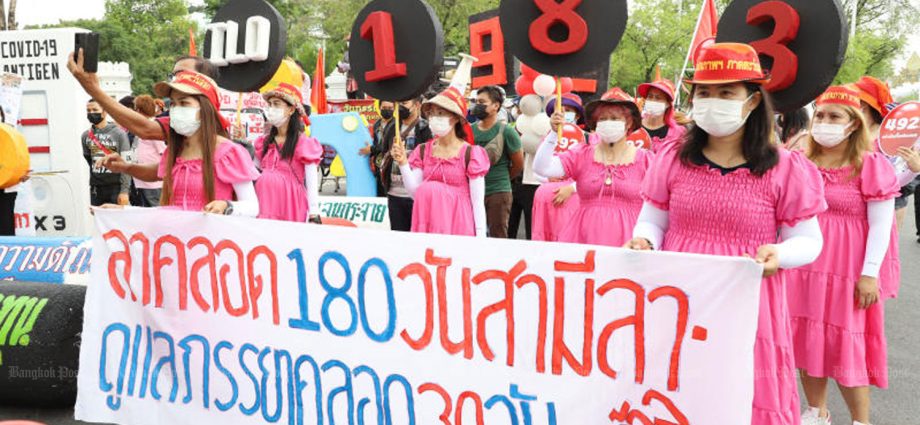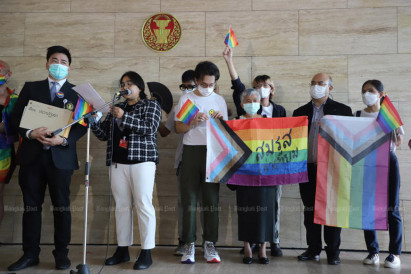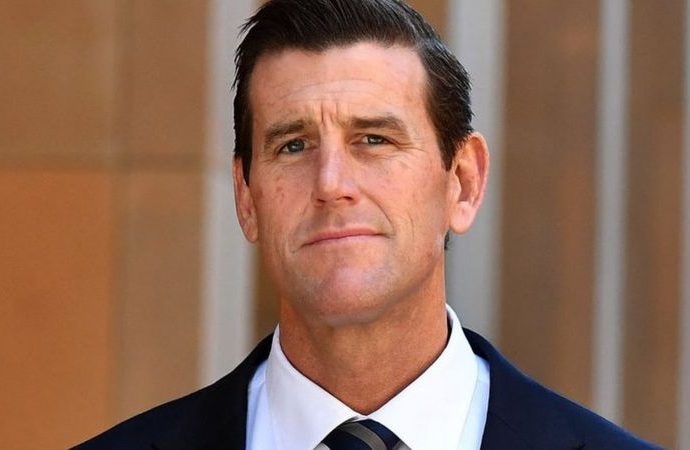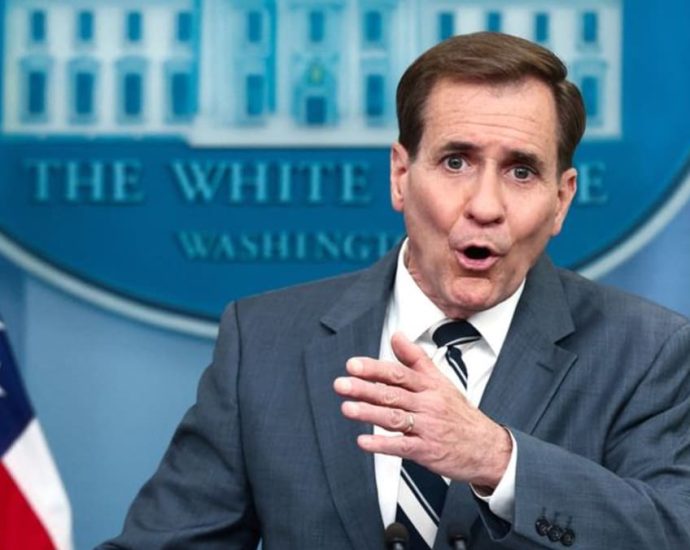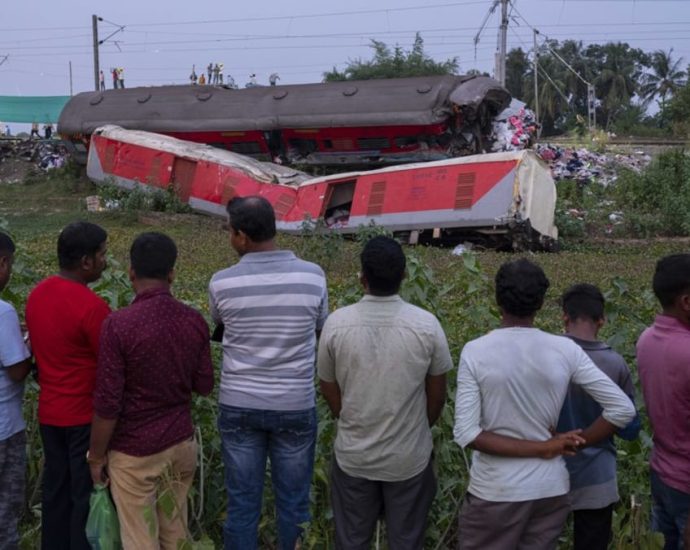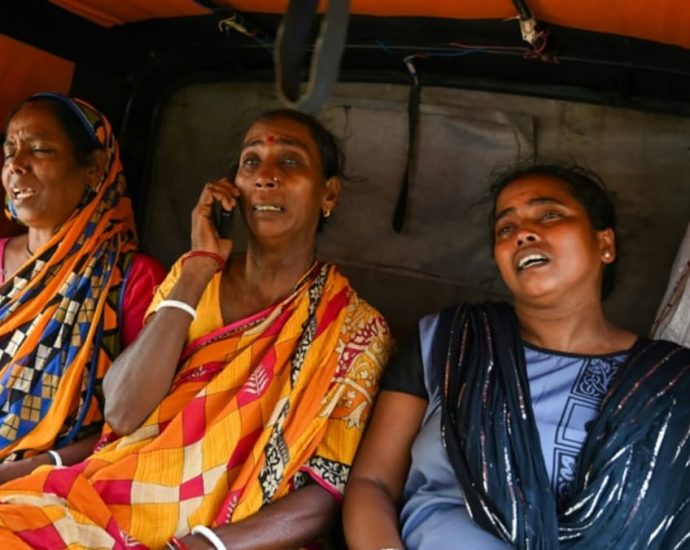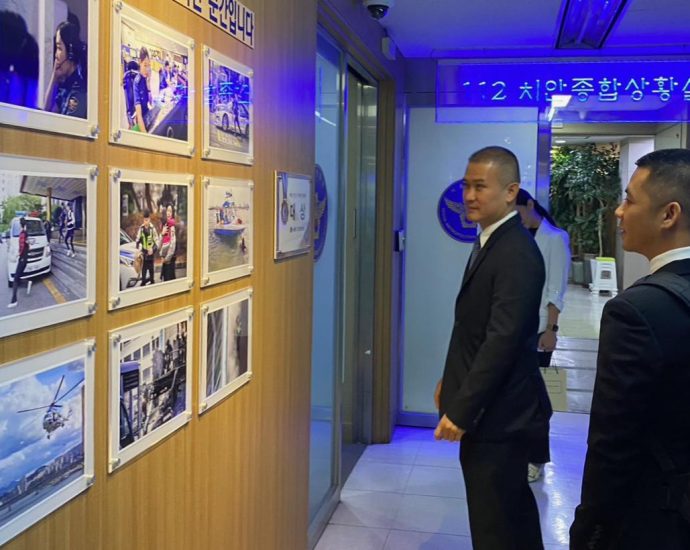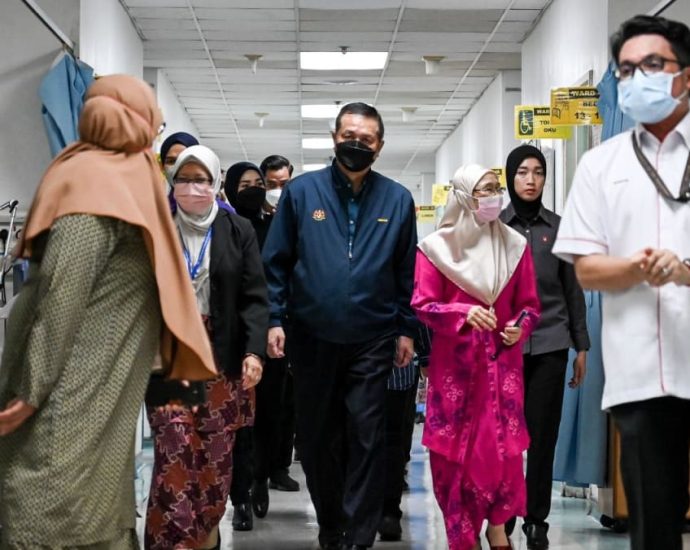Male govt employees to get 15 days paternity leave

The government has broadened paternity leave periods to cover male government employees, allowing them to have 15 days’ paid leave after their child’s birth.
The leave extension was part of a new Government Employees Executive Committee’s announcement regarding government employee benefits that was signed on Monday, Deputy Prime Minister Wissanu Krea-ngam said.
The paternity leave regulation was added to the section regarding maternity leave in the older version of the announcement issued in 2011. The previous version limited the right to only government officials, a 98-day maternity leave and a 15-day paternity leave with full pay for both males and females. Female government employees already have 90 days of maternity leave.
Mr Wissanu said the updated regulation would give equal rights to government employees employed by government agencies but who do not have fringe benefits like government officials.
Government employees work like government officials, but they do not have to pass a national government test, and they don’t get a pension after retiring. The government introduced government employees (some of whom are on limited contracts) to cut costs.
According to the announcement, male employees wanting to take the 15-day paternity leave must notify their supervisor within 30 days after the delivery day.
Supervisors have full authority to require evidence from the employees.
Those who want to take leave after a child is more than 30 days old can take leave without pay for 15 days unless their supervisors approve the leave with full pay.
MFP to bring back gender equality bill

Move Forward Party (MFP) leader Pita Limjaroenrat has vowed to push for a bill seeking to legalise same-sex marriage and improve gender equality after forming a government.
Writing on Facebook, Mr Pita, the party’s prime minister candidate, said: “Once we can form a government, we will push for the passage of the [MFP’s] marriage equality bill within 100 days.”
“It is also part of a memorandum of understanding signed by members of the [prospective] coalition,” he posted.
The coalition, consisting of eight parties, signed an MoU agreeing on a joint policy platform on May 22, which includes a pledge to pass the marriage equality bill to ensure equal rights for all couples regardless of gender.
“There are also several other policies which Move Forward will push as executives of ministries and as members of the legislative branch in the House of Representatives to promote gender equality in Thai society,” Mr Pita wrote.
“Every person has human dignity and is equal before the law,” he added. “They must have equal access to public services without discrimination because of their gender, race, belief, education, age, and disabilities.”
Mr Pita made similar remarks on Sunday when he joined a Pride Parade in central Bangkok, which drew thousands of LGBTQ+ people, their supporters as well as other political figures.
Parit Wacharasindhu, MFP list-MP elect, tweeted on Monday that the bill will not only promote gender equality but also open a host of financial, tax and inheritance benefits for members of the LGBTQ+ community.
According to the MFP, the marriage equality bill will aim to amend Section 1448 of the Civil and Commercial Code, which limits the definition of marriage to a man and a woman, by making the marriage law applicable to any couple, regardless of gender.
The bill passed its first reading in parliament in June of last year, but it stalled during its second reading due to several problems, including a delay to make way for the deliberation of other bills, as well as repeated cancellations of House meetings caused by a lack of a quorum.
Deliberation of the bill was suspended further when the previous House’s final session ended on Feb 28.
However, if the MFP forms the government, it may ask the newly elected House to resume deliberation of the bill, according to observers.
Indonesia kicks off multilateral naval exercise amid Asia-Pacific tension
JAKARTA: Indonesia on Monday (Jun 5) launched a multilateral naval exercise in its waters, alongside navies from countries including the United States, Britain, China, Japan, Russia and South Korea, amid simmering tensions in the Asia-Pacific region. Indonesia’s navy said in a statement the routine Komodo drills were a “non-war” exerciseContinue Reading
Ben Roberts-Smith threatened witnesses in defamation trial, judge says
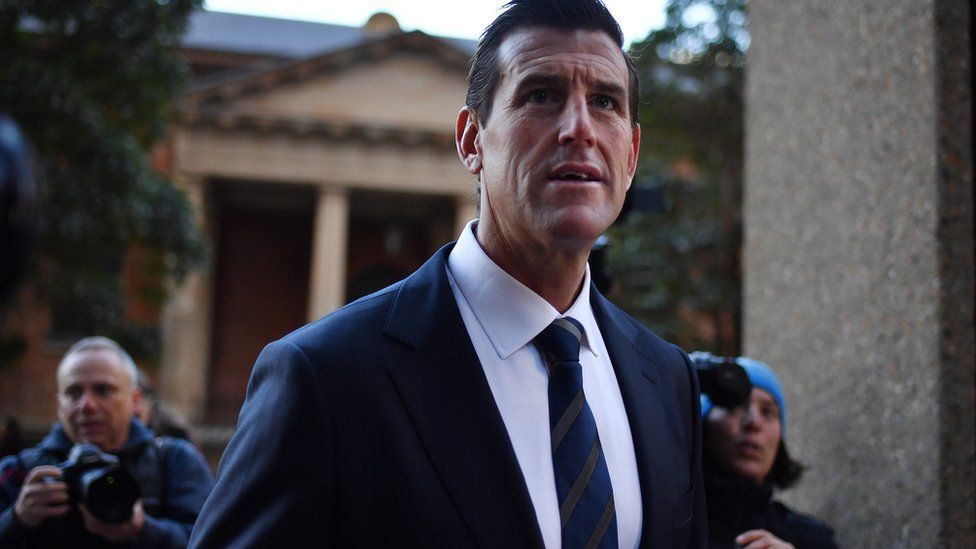 Getty Images
Getty ImagesA judgement in a landmark defamation trial says Australia’s most-decorated living soldier lied to cover up his misconduct and threatened witnesses.
It also found Ben Roberts-Smith “complicit in and responsible for” the murder of four Afghans.
Last week, he lost a defamation suit against three Australian newspapers over war crimes allegations.
It has raised the spectre of a possible wider reckoning over claims of war crimes by Australian forces.
On Thursday, Federal Court Judge Anthony Besanko threw out the former special forces corporal’s case against The Age, The Sydney Morning Herald, and The Canberra Times.
Mr Roberts-Smith claimed the papers ruined his life with their reports that he had broken the moral and legal rules of war.
The judge delayed releasing the reasons for his judgement until Monday, to allow Australian authorities time to ensure it did not inadvertently divulge national security secrets.
But Judge Besanko found the claims that Mr Roberts-Smith had murdered unarmed prisoners and civilians while serving in Afghanistan were “substantially true”.
Saying that the 44-year-old was “not an honest and reliable witness”, he added: “I have difficulty accepting the applicant’s evidence on any disputed issue”.
He further found that the Victoria Cross recipient invoked a special forces code of silence to intimidate witnesses, and also smeared and threatened others.
Mr Roberts-Smith had used a private investigator to mail threats to those considering testifying against him, something Judge Besanko said may constitute a criminal offence – either perverting the course of justice or using a postal service to menace, harass or cause offence.
More articles from the reporters at the centre of the trial, published in the days following the judgement, also allege further intimidating behaviour.
Mr Roberts-Smith went to the extent of sending a legal threat to Gina Rinehart, Australia’s richest woman, warning that an ex-soldier – Ms Rinehart’s relative – would be sued for speaking ill of him, Nine Newspapers reported.
He also used his private detective to investigate another former soldier and his family, and was captured on tape lambasting soldiers who break the code of silence.
“A few people [in the special forces] had done what we don’t do, and that’s talk out of school,” he said, according to the report.
Mr Roberts-Smith has not commented since the ruling, but he is expected to appeal to the full bench of the federal court.
The 110-day defamation trial cost up to an estimated A$25m ($16.3m, £13.2m).
Mr Roberts-Smith had been considered a national hero for having single-handedly overpowered Taliban machine-gunners who were attacking his Special Air Service (SAS) platoon, earning him Australia’s highest military honour.
He was appointed to high-profile executive positions and received a string of accolades, even being crowned Father of the Year in 2013.
But while he has not been charged with any offences, the father of two is currently the subject of an Australia Federal Police inquiry into alleged war crimes.
In 2020, a landmark investigation known as the Brereton Report found “credible evidence” that elite Australian soldiers unlawfully killed 39 people in Afghanistan.
It recommended that 19 current or former soldiers should be investigated over alleged killings of prisoners and civilians from 2009-13.
Related Topics
-
-
3 days ago
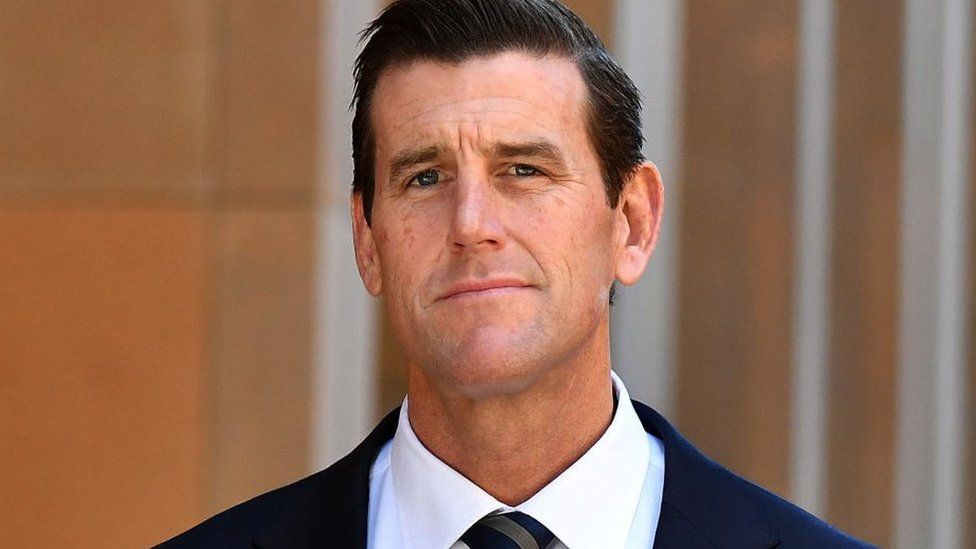
-
After dangerous encounters, US accuses China of military ‘aggressiveness’
Kirby said if China wanted to deliver the message that the US was not welcome in the area or that it wanted American aircraft and vessels to stop flying and sailing in support of international law, that would not succeed. “It’s not gonna happen,” Kirby said. US SEEKS “PREDICTABLE RELATIONSHIP”Continue Reading
As India grieves train crash that killed 275 people, relatives still wait for bodies of loved ones
So far only 45 bodies have been identified, and 33 have been handed over to relatives, said Mayur Sooryavanshi, an administrator who was overseeing the identification process at the hospital in the capital of Odisha state, about 200km south of the site of the train crash in Balasore. Upendra RamContinue Reading
What we know about India’s worst rail tragedy in decades
India’s worst crash was in 1981, when an overcrowded passenger train plunged into a river during a cyclone in Bihar state, killing about 800 people. WHAT IS INDIA’S SAFETY RECORD India has launched a US$30 billion railway infrastructure modernisation in a bid to boost the economy and connectivity, and VaishnawContinue Reading
Grieving family ponders life without breadwinner after deadly Indian train crash
ODISHA, India: Twenty-year-old Bijay Lakshmi was a demure and shy girl when she got married barely a year ago with so many dreams in her eyes, but had to grow into a woman soon as she became mother to a daughter in April. For past couple of weeks, Bijay LakshmiContinue Reading
‘Ghosts’ return to Korean haunts

Central Investigation Bureau (CIB) representatives recently took a trip to South Korea, to meet with their counterparts to try to find a solution to the problem of illegal Thai labourers, known as phi noi or little ghosts.
The meeting was led by the commissioner, Pol Lt Gen Jirabhop Bhuridej, who was accompanied by officers from the Royal Thai Police’s Anti-Trafficking in Persons Division (ATPD), attorneys and related sectors working on the issue.
He said that the trip was more than just a knowledge exercise, and they had discussed the systematic resolution to labour problems, especially those that might lead to human trafficking.
The team also had a discussion with the Royal Thai Embassy in South Korea before getting the ball moving on changes to the law that the Immigration Bureau is set to advise on.
According to information gathered by the Royal Thai Embassy in Seoul and its legal authority, before Covid-19, at least 170,000 Thai labourers worked in South Korea. Most of them were blue-collar workers. The number rose to 200,000 after the situation with the disease improved, said Pol Lt Gen Jirabhop.
However, only 40,000 of that number are legally employed. In other words, at least 75% (160,000) have no official permission, and that total exceeds the annual limit allowed under a Memorandum of Understanding (MoU) on access to the Korean employment market.
“The number of those working illegally is more likely to increase in the future,” warned Pol Lt Gen Jirabhop.
Pol Col Marut Kanjankhankul, the ATPD’s deputy commander, who was also on this trip, said that the illegal labourers mostly came to work in the agricultural and industrial sectors.
Interestingly enough, even though news had surfaced about those illegal workers being deported and then blacklisted, Pol Lt Gen Jirabhop said that the public tended to overlook their welfare and the lack of power that they have to bargain with their Korean employers.
The group are often exploited by their employers, who demand long hours or pressure women into prostitution.
“So, it is down to the RTP and related public sector agencies to take better care to solve the problem,” he said.
magnet of better pay
Thais who work illegally in South Korea might be attracted by the higher rates of pay that are offered for similar roles abroad, Pol Lt Gen Jirabhop said, adding that one of the ideas under discussion to dampen demand is to provide more information on what he called the “reality” of working in a new country.
On the suppression side, he said that CIB will exchange information with the South Korean authorities as part of a crackdown on illegal agencies, he added.
The CIB representatives also met with the Prosecutor General of the Supreme Prosecutors’ Office of South Korea to shape future cooperation on the legal side.
What Pol Lt Gen Jirabhop saw arising from the discussion was closer coordination between the Korean police and Thai prosecutors.

Jirabhop: Number of illegals will rise
An improved justice system, he said, would be the result of both law enforcement parties working together and using their electronic systems to share real-time information about each case.
“I think that Thailand’s law enforcement units — police, prosecutors, courts, and prisons — must adopt new technology, and it might take some time to reach that point,” he said.
A discussion with representatives of the Thai Labourers Network of South Korea is also ongoing.
According to Pol Lt Gen Jirabhop, the network said that wages known to reach 60,000 baht a month in some professions, as well as seductive social media adverts, had seen demand rise in recent years.
The flow of blue-collar labourers is linked to the fact that Korean job seekers tended to avoid what they called “3D jobs”, where “D” stands for difficult, dirty, and dangerous roles.
Those labourers were lured by the higher pay without knowing much about the downsides, such as how their lack of language skills and permitted residency would leave them isolated and vulnerable unscrupulous bosses and tempted to sink yet further into committing criminal acts themselves, Pol Lt Gen Jirabhop said.
“It appeared that most of the Thai labourers who died overseas during the Covid outbreak period were those working in South Korea. The fact that 2,000 of those, including the illegal ones, were sent back to Thailand during the beginning of the pandemic reflected the fact that the illegal labourers had only the Embassy Office to rely on when they were in trouble. Those who worked illegally did not get help from their employers,” he added.
Finding solutions
Palita Song from the Expats Labourers Help Centre in South Korea told the Bangkok Post that illegal labourers had even harder accessibility to its public health system and tended not to be paid by their employers when they get sick.
Interestingly enough, she said that some of the illegal labourers had worked there legally but were later left with little choice if they wished to remain except take work in the grey sector due to strict labour laws and regulations.
Massage is a good example of a profession where the lack of protection provided to illegal workers often puts them at an extreme disadvantage, according to Arporn Upakarnrot, labour attaché of the Royal Thai Embassy in South Korea. She added that that the country allowed only Koreans with vision disabilities to apply as masseurs.
However, many Thai nationals, mostly women, were willing to take the risk and offer massage services. Most of them were reportedly persuaded by their employers to sell sex as well, she said.
Pol Col Marut said that those illegal labourers, however, refused to meet the ATPD’s representatives to discuss their problems, saying they are voluntarily illegal and their families’ lives seem to be improved by what they do.
“The ATPD, however, is still worried about them being abused by their employers or being involved in any trafficking circles nonetheless,” he added.
Pol Lt Gen Jirabhop said that the bilateral meeting with the Korean authorities had yielded information about the illegal labourers’ movements which could be linked to the government and CIB’s new big data system.
Active resolutions, such as providing the labourers with information on the problem of working there illegally, were one of the plans the CIB had crystallised during the discussion, he said.
Commentary: Is a national health insurance like South Korea or Singapore the way to go for Malaysia?

In 2012, Mr Liow Tiong Lai tried to introduce 1Care national health insurance during former prime minister Najib Razak’s administration. The idea was not well-received by the people: One concern was healthcare cost escalation for Malaysians and contracts financed by public funds being outsourced to corporate interests.
Months before the 2018 general election, Dr Subramaniam Sathasivam announced the Voluntary Health Insurance as an incremental step towards a national health insurance, but the government lost the election.
The winning coalition’s Dr Dzulkefly Ahmad also considered the idea but the Pakatan Harapan administration was short-lived.
Mr Khairy Jamaluddin, who started the Health White Paper, said in 2022 that national health insurance is one of the forms of healthcare funding to be considered – something his successor has continued.
Current Health Minister Dr Zaliha Mustafa announced in March that the White Paper will look into diversifying funding sources, with focus on a national health insurance scheme.
If the paper passes in parliament, the ministry will begin basic work required for the development of a national health insurance scheme, such as calculating contribution rates, developing health benefit packages and determining the payment mechanism for health service providers, she said.
WHY THE INTEREST IN A NATIONAL HEALTH INSURANCE?
It is given that more funding is needed, given the pressures on Malaysia’s health system, made worse by the pandemic.

